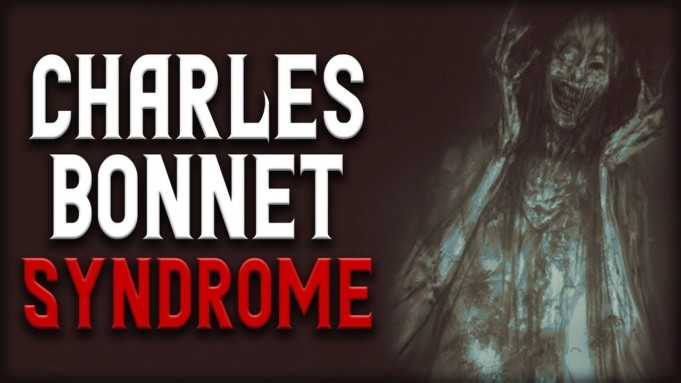Charles Bonnet syndrome (CBS) is referred to as the condition that causes vivid hallucinations in people. The result of this syndrome also causes a person to lose all or some part of their vision suddenly.
Charles Bonnet syndrome doesn’t affect a person born with vision issues. According to a study in 2009, 10% to 38% of individuals with a sudden vision impairment suffer from Charles Bonnet syndrome at some point.
Nevertheless, there’s a reason to believe that the percentage of people affected may be higher. This is because most people hesitate to report to their doctor about their hallucinations for fear they might be misdiagnosed as mentally unstable.
Symptoms of Charles Bonnet syndrome
The primary symptoms of CBS include visual hallucinations, which often occur shortly after a person wakes up. A person can experience this on a daily or a weekly basis, and this can last for some minutes to several hours.
The subject of these hallucinations also varies from one person to another, but they may include;
- People
- Geometric shapes
- Animals
- Buildings
- Insects
- Costume people from past lives
- Landscape
- Repeating patterns, such as lines or grids
- Fantasy-related images, such as unicorns and dragons
There have been reports of people hallucinating in black, white, and sometimes in colors. The content of their hallucinations may be stationary or may involve movements.
Some people with Charles Bonnet syndrome have reported seeing the same animals and people over and over again while hallucinating. This often explains why most people with CBS don’t seek medical help for fear of being misdiagnosed.
People who are hallucinating for the first time may conclude that they are just confused about whether what they are seeing is real or not. After consulting with your doctor and confirming that they aren’t real, the condition shouldn’t alter a person’s perception of their reality.
You may need to inform your doctor if you continue to get overwhelmed about the reality of your hallucination. This could be a clear case of an underlying medical problem.
Causes of Charles Bonnet syndrome
Charles Bonnet syndrome generally occurs after a person loses their eyesight, or when they have visual impairment due to surgical complications or an underlying condition that may include;
- Cataracts
- Glaucoma
- Macular degeneration
- Severe myopia
- Temporal arteritis
- Retinitis pigmentosa
- Optic neuritis
- Diabetic retinopathy
- Occipital stroke
- Central retinal artery occlusion
- Retinal vein occlusion
It is still unclear why this happened, but experts have many theories. One significant suggestion is that CBS works identically to phantom limb pain.
This refers to the pain felt in the area where a limb has been removed. In the case of people with CBS, the visual sensation can still be felt even when they are not able to see.
Diagnosis
For Charles Bonnet syndrome to be correctly diagnosed, doctors would like to run some physical examinations and ask for an accurate description of your hallucinations. An MRI scan may be done to check for any memory or cognitive-related issue to rule out other conditions.
Treatment
There’s currently no cure for CBS; however, several steps may help to make Charles Bonnet syndrome more manageable, and these steps include:
- Try moving your eyes, or you could try focusing at the hallucination
- Changing position when hallucination starts
- You could stimulate your other senses by listening to music or audiobooks
- Minimizing anxiety and stress
- Fixing more lights in your surroundings
- Engaging in outdoor or social activities to reduce social isolation
In other cases, drugs used for the treatment of neurological conditions, such as Parkinson’s disease or epilepsy, may help. Nevertheless, serious side effects have been linked to the use of these drugs.
Many people also ease themselves through repetitive transcranial magnetic stimulation. This involves a non-invasive process that uses magnets to stimulate specific areas of the brain. Also, it can be used to treat depression and anxiety.
Possible complications associated with Charles Bonnet syndrome
There are no physical complications related to CBS. However, most people feel stigmatized, especially with the fact that people see them as mentally unstable. The feeling of stigmatization can cause feelings of depression, isolation, and anxiety in people with CBS.
Joining support groups or having regular meetings with a mental health professional can help better manage the condition.
Conclusion
Charles Bonnet syndrome is possibly more common than people think. This is due to the hesitation people have towards telling their doctors about their hallucinations for fear of being tagged as mentally unstable.
If you’re experiencing symptoms and fear that your medical doctor won’t understand what you might be going through, then it might help to keep a log of your hallucinations.
This should also include when you have the hallucinations and what you see. You’ll likely recognize a pattern, which is regular in hallucinations caused by Charles Bonnet syndrome.
You can also find doctors who have experience with Charles Bonnet syndrome, that can understand and help manage the condition by joining support groups.
Several people with CBS experience fewer hallucinations for about 12-18 months after losing a part or all of their vision. While for some, they may completely stop.
Have you ever had Any experience with Charles Bonnet syndrome? What did it feel like having to hallucinate? Does your doctor understand what you’re going through? Share your thoughts about this article with us in the comments below.












